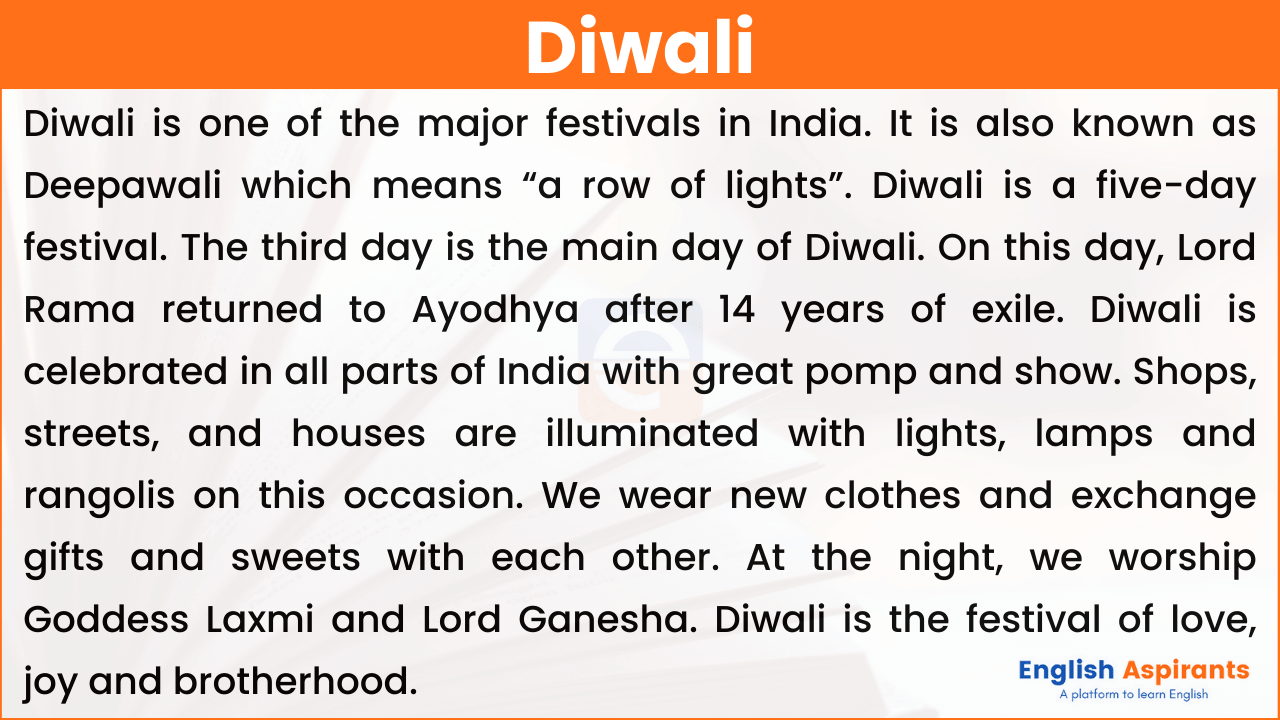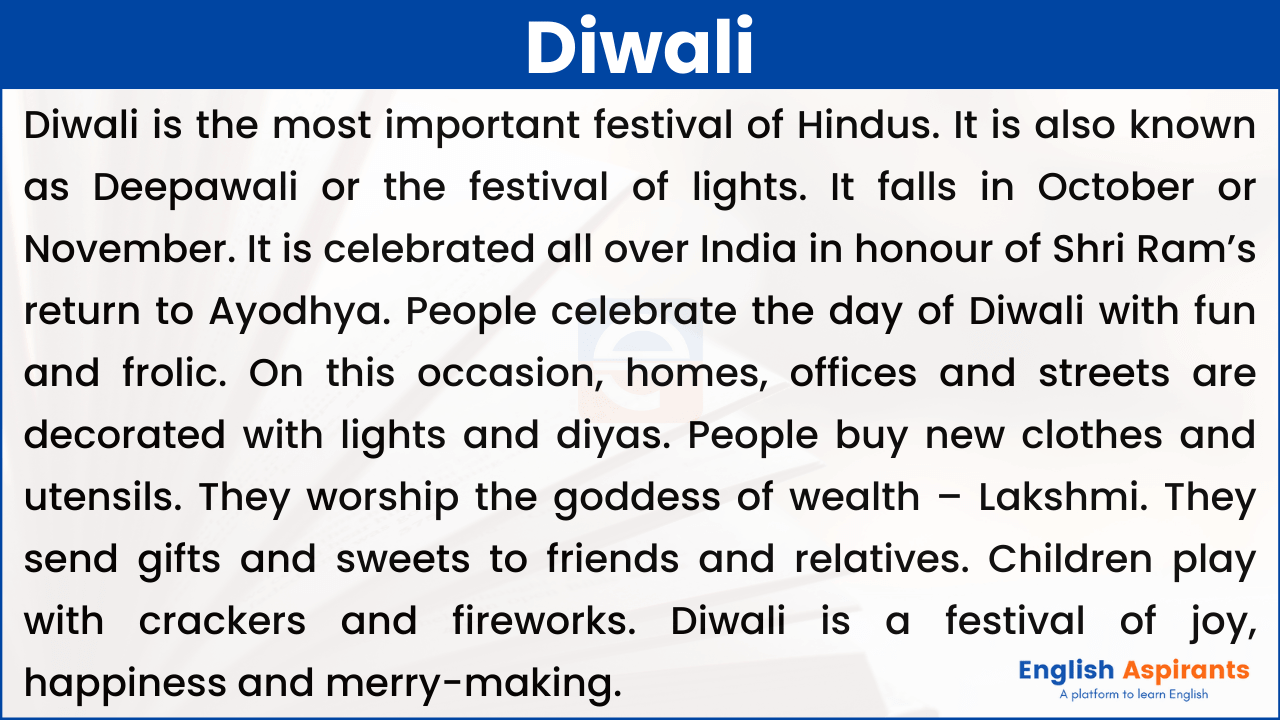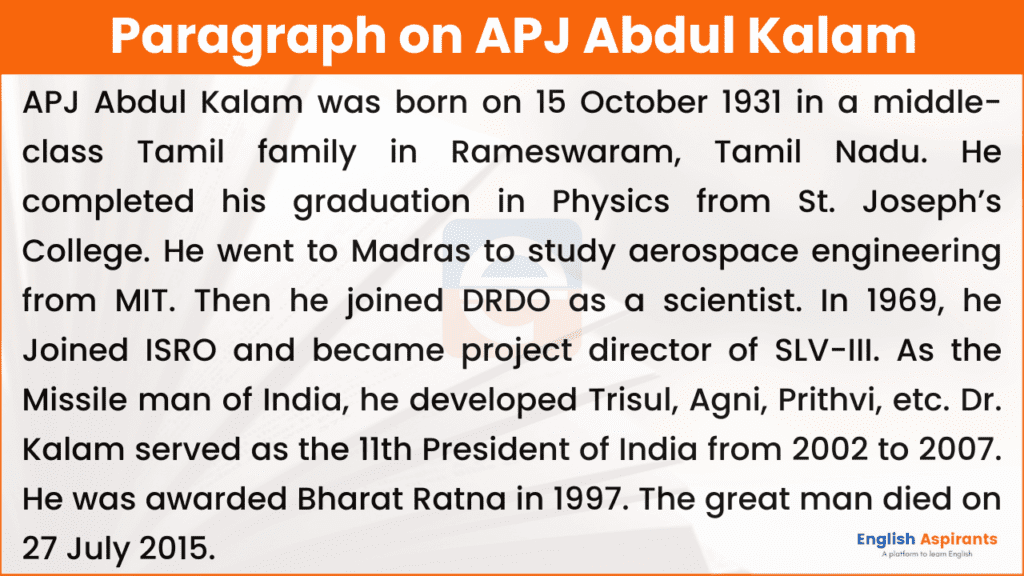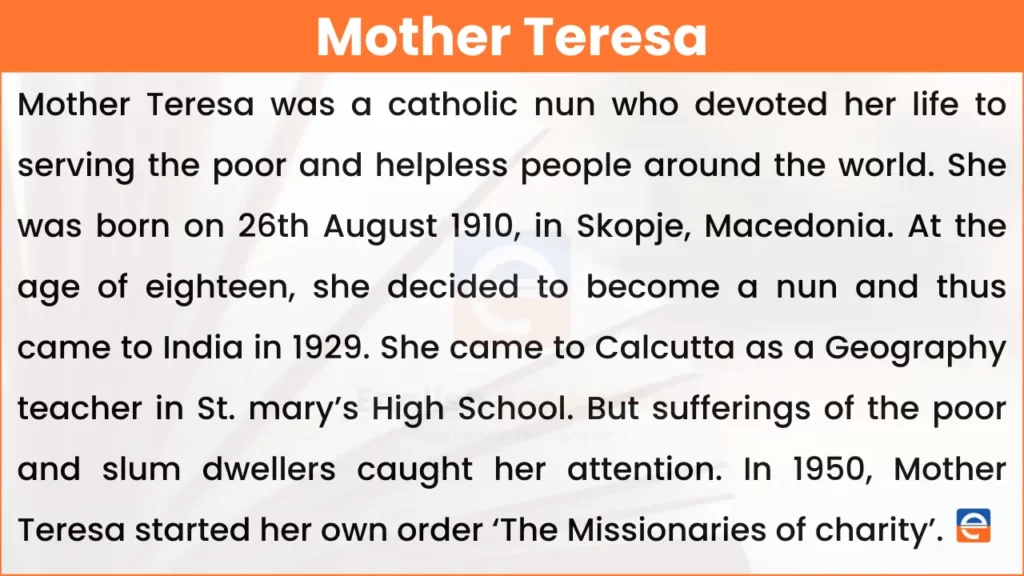- School & Boards
- College Admission
- Govt Jobs Alert & Prep
- Current Affairs
- GK & Aptitude
- School Life

Essay on Diwali 2024: Long and Short Paragraphs and 10 Lines on Deepavali
Diwali essay in english: happy diwali check here essay on diwali, short paragraph on diwali, easy diwali essay in english 10 lines for kids, diwali essay in english 300 words, long diwali essay in english and eco-friendly diwali essay in english for diwali 2024. download all the essays in pdf format for free..

Diwali Essay in English 10 lines
Line 1: Diwali, is also known as 'Deepavali' or the 'Festival of Lights’.
Line 2: It also marks the beginning of New Year for many cultures in India.
Line 3: It signifies the return of Lord Rama to Ayodhya after defeating Ravana, symbolising the victory of good over evil and light over darkness.
Line 4: People light diyas - earthen oil lamps and adorn their homes with colourful rangolis.
Line 5: On Diwali, people clean their homes and decorate with flowers and colourful rangoli.
Line 6: Neighbours and families exchange gifts and sweets amongst each other .
Line 7: Goddess Lakshmi and Lord Ganesha are worshipped.
Line 8: Diwali is a five-day long festival.
Line 9: Choti Diwali is celebrated one day before Diwali.
Line 10: Diwali is a symbol of good over evil and promotes unity and brotherhood.
Short Essay on Diwali in 200 Words
Diwali, also known as Deepavali, is a beloved and widely celebrated festival in India, symbolising the victory of light over darkness, good over evil, and knowledge over ignorance. Spanning five days, it begins with Dhanteras when homes are cleaned, new clothes and utensils are bought. The second day, Naraka Chaturdashi or Choti Diwali, marks Lord Krishna's victory over Narakasura with oil lamps. The main day, Diwali, worships Goddess Lakshmi for wealth and prosperity, lighting homes with oil lamps, rangoli, and fireworks. Govardhan Puja and Bhai Dooj follow, honoring Lord Krishna and sibling bonds.
Gift exchanges and traditional sweets like ladoos, barfis, and jalebis are integral to Diwali, symbolizing love, respect, and stronger bonds. Hindus celebrate Rama's return after defeating Ravana, Jains mark Mahavira's nirvana, and Sikhs commemorate Guru Hargobind Ji's release on Bandi Chhor Divas.
Environmental concerns have led to eco-friendly celebrations, emphasizing diyas and natural decorations to reduce the carbon footprint.
Essay on Diwali in 300 Words
Diwali, also known as Deepawali, is a significant and joyful Hindu festival celebrated with great fervor. Falling typically in the months of October or November, Diwali holds immense cultural and religious importance as it commemorates the return of Lord Rama to Ayodhya after his heroic victory over the demon king Ravana, symbolising the eternal triumph of good over evil.
During Diwali, homes go through an amazing change. They are made super-clean and look beautiful with colorful decorations. People put lots of lights, pretty flowers, and beautiful designs made of coloured powder outside their homes. It's a time when people love to give and receive gifts. They also wear new and fancy clothes, which makes everything feel even more festive and happy.
The main day of Diwali involves heartfelt prayers and rituals dedicated to Goddess Lakshmi and Lord Ganesha, the divine patrons of wealth, prosperity, and wisdom. Devotees seek their blessings for a life filled with abundance and enlightenment.
Clay diyas, radiant with an array of colors, are lit in every corner of households, symbolizing the victory of light and hope over darkness and despair. Traditionally, firecrackers were used to drive away evil spirits; however, growing concerns about their environmental impact and health effects have led to more eco-conscious celebrations.
Essay on Diwali Festival in 400 Words
Diwali, or Deepavali, is an auspicious and cherished festival celebrated with great fervor and enthusiasm across India. It is a festival that signifies the triumph of light over darkness, good over evil, and knowledge over ignorance. Typically spanning five days, Diwali is a time when families come together to engage in various customs, rituals, and traditions that have deep cultural significance.
Diwali usually falls in October or November. The festivities commence with Dhanteras, the first day, when people engage in thorough cleaning and adorn their homes. This day is also marked by the purchase of new clothes and utensils. The second day, known as Naraka Chaturdashi or Choti Diwali, is observed by lighting oil lamps to commemorate Lord Krishna's victory over the demon Narakasura. The third day, which is the main Diwali day, is dedicated to the worship of Goddess Lakshmi, the deity of wealth and prosperity. Homes are adorned with oil lamps, vibrant rangoli designs, and fireworks light up the night sky to celebrate the triumph of light. This day symbolizes the removal of spiritual darkness and the ushering in of prosperity and good fortune.
The fourth day of Diwali is Govardhan Puja, commemorating Lord Krishna's lifting of the Govardhan Hill to shield villagers from a rainstorm caused by Lord Indra. The fifth and final day is Bhai Dooj, a day dedicated to honoring the bond between brothers and sisters.
Diwali holds religious significance for various communities. Hindus celebrate it as the return of Lord Rama after vanquishing the demon king Ravana. Jains view it as the day Lord Mahavira attained nirvana, and Sikhs commemorate it as Bandi Chhor Divas, signifying Guru Hargobind Ji's release from imprisonment.
Long Essay on Diwali Celebration
Diwali is one of the most significant and widely celebrated festivals in India. It holds immense cultural, religious, and social importance, bringing people from all walks of life together in a spirit of joy and unity. This festival signifies the victory of light over darkness, good over evil and knowledge over ignorance.
Diwali typically falls in October or November. The preparations for Diwali begin weeks in advance, with families eagerly awaiting this grand festival. Homes are thoroughly cleaned and decorated and new clothes and utensils are purchased. This practice not only prepares the physical surroundings but also symbolises the inner purification of individuals and their homes.
The five-day celebration commences with Dhanteras, the first day. On this day, people worship Lord Dhanvantari, the Hindu god of medicine, and Ayurveda. It is also considered auspicious to purchase gold and silver on Dhanteras, as it is believed to bring good luck and prosperity.
The second day, Naraka Chaturdashi, is celebrated to commemorate the victory of Lord Krishna over the demon Narakasura. People wake up early and take an oil bath to purify themselves. They then light oil lamps and candles all around their homes and offices.
The third day is the main Diwali day, also known as Lakshmi Puja. This day is dedicated to the worship of Goddess Lakshmi, the Hindu goddess of wealth and prosperity. Families come together to perform special prayers and pujas to seek blessings for a prosperous year ahead. Homes are adorned with oil lamps, colorful rangoli designs, and flowers. In the evening, people burst firecrackers to celebrate the victory of good over evil.
The fourth day of Diwali is known as Govardhan Puja or Padwa. On this day, people worship Lord Krishna for lifting the Govardhan Hill to protect the villagers from Lord Indra's wrath. People also visit their relatives and friends and exchange gifts and sweets.
The fifth and final day of Diwali is Bhai Dooj, also known as Yama Dwitiya. This day is dedicated to celebrating the bond between brothers and sisters. Sisters prepare special dishes for their brothers and apply a tilak (vermilion mark) on their foreheads. Brothers, in return, give gifts to their sisters.
Long Essay on Diwali, Pollution Free and Eco-friendly Deepavali in 600 Words
Deepawali, also known as Diwali, is one of the most popular and auspicious festivals celebrated in India. Also known as the festival of lights, it marks the victory of good over evil, knowledge over ignorance, and hope over despair. Diwali is celebrated on the darkest night of the Hindu lunar month Kartika, which usually falls in October or November.
The word Diwali is derived from the Sanskrit word Deepavali, which means "a row of lamps." The festival is celebrated by lighting diyas (oil lamps) and candles all around the house and office. This symbolizes the victory of light over darkness and the triumph of good over evil. Diwali is a significant festival for Hindus all over the world. It is a time to celebrate the victory of good over evil, knowledge over ignorance, and hope over despair. The festival also marks the beginning of the new Hindu year.
Diwali is also celebrated to commemorate the return of Lord Rama to Ayodhya after defeating the demon king Ravana. Rama was exiled from Ayodhya for 14 years, and his return was marked with great joy and celebration. The people of Ayodhya lit diyas and decorated their homes to welcome him back. Another reason why Diwali is celebrated is to honor Lakshmi, the Hindu goddess of wealth and prosperity. People perform Lakshmi Puja on Diwali night to seek her blessings for wealth and good fortune.
Diwali is a time for families and friends to come together and celebrate. People clean and decorate their homes, buy new clothes, and prepare delicious food. On Diwali night, people gather to light diyas, perform Lakshmi Puja, and exchange gifts. Diwali is also a time for families and friends to come together and celebrate. It is a time to forgive and forget, and to start fresh. The festival is also a time to give and receive, and to spread joy and happiness. Diwali is also a time for giving back to the community. People donate to charities and help those in need. The festival is a reminder to be grateful for our blessings and to share them with others.
Diwali is celebrated with great enthusiasm and joy all over India. People start preparing for the festival weeks in advance. They clean their homes, decorate them with lights and rangolis, and buy new clothes. On Diwali night, people light diyas and candles all around their homes and offices. They also perform Lakshmi Puja to seek her blessings for wealth and good fortune. After the puja, people exchange gifts with their family and friends. People prepare delicious food and sweets, and share them with their loved ones.
In recent years, there has been a growing awareness about the environmental impact of Diwali celebrations. People are now more conscious about using eco-friendly ways to celebrate the festival.
Eco-friendly Diwali, also known as "Green Diwali," is an environmentally conscious approach to celebrating the festival of lights. It involves minimising the harmful environmental impacts associated with traditional Diwali practices. People choose to use eco-friendly alternatives, such as clay diyas (oil lamps) instead of electric lights, to reduce electricity consumption. Additionally, eco-friendly fireworks, which produce fewer pollutants and noise, are gaining popularity. Rangoli designs made from natural materials and organic, biodegradable decorations contribute to a cleaner and more sustainable celebration. Eco-friendly Diwali aims to preserve the environment, reduce air and noise pollution, and promote a more responsible and harmonious way of celebrating this cherished festival.
Paragraphs on Diwali
Diwali celebrations, five days of diwali, when is diwali celebrated in 2024 .
According to Drik Panchang, Diwali falls on Thursday, October 31 . Meanwhile, Lakshmi Puja will also be performed on October 31, as the Amavasya moon will be visible that evening.
What are the five days of Diwali 2024?
Diwali 2024 wishes in english.
1. "May the festival of lights fill your life with happiness and prosperity. Wishing you a sparkling and joyous Diwali!"
2. "Happy Diwali! May your life be illuminated with the divine blessings of Lord Rama."
3. "Wishing you a Diwali filled with love, laughter, and all things bright and beautiful. Have a wonderful celebration!"
4. "Wishing you a safe and prosperous Diwali! Let the brightness of Diyas light up your world with success and happiness."
Why Do We Celebrate Diwali?
Get here latest School , CBSE and Govt Jobs notification and articles in English and Hindi for Sarkari Naukari , Sarkari Result and Exam Preparation . Download the Jagran Josh Sarkari Naukri App .
- How do we celebrate Diwali 10 lines? + On Diwali, people light diyas - earthen oil lamps and adorn their homes with colourful rangolis. We clean our homes and decorate it with flowers. Neighbours and families exchange gifts and sweets amongst each other as a symbol of good will, well being and best regards. Goddess Lakshmi and Lord Ganesha are worshipped on this day.
- What is the real date of Diwali in 2024? + Diwali is observed on the Amavasya Tithi of the Kartik month, which begins at 3:52 PM on October 31 and ends at 6:16 PM on November 1, 2024. Most of India will celebrate Diwali on October 31, while some communities will observe it on November 1 due to regional traditions.
- CTET Exam Analysis 2024
- CBSE CTET Admit Card 2024
- CTET Unofficial Answer Key 2024
- UPPSC Admit Card 2024
- SSC GD Cut Off 2024
- CTET Question Paper 2024
- SSC GD Final Result 2024
- Mahaparinirvan Diwas Speech
- CBSE 12th Date Sheet 2025
- CBSE 10th Date Sheet 2025 PDF
- Education News
Latest Education News
Top 10 Best-Selling Books of All Time
IQ Test: Can You Guess the Next Number in the Sequence in 4 Seconds?
Top Govt Jobs of the Week: Check Notification and Other Details
2024 Christmas Countdown: How Many Days and Weeks Until Christmas 2024? Check the Exact Date Here
Picture Puzzle IQ Test: Who's the Real Woman? Find Her in 5 Seconds!
Which are the Three Deepest Rivers in India, Check Here
RRB JE Electrical Engineering Syllabus 2024, Check Important Topics
Italy Grants Citizenship to Argentina's President Milei Sparking Outrage
किसी राज्य में सरकार गिरने पर 'एक राष्ट्र-एक चुनाव' कैसे करेगा काम? समझें यहां
CBSE Class 12 Syllabus 2024-2025 with Important Resources for Board Exam Preparation
Mahakumbh 2025: When does it Start? Check Transportation, Travel and Other Key Details
CBSE Class 10 Science Most Repeated Questions: Download Frequently Asked Questions for Board Exam 2025
HP Board Class 10 Subject-wise Model Paper 2024-25: Download Free PDF
ISC Board Class 12 Mathematics Sample Paper 2024-25: Download PDF Here
Rajasthan Board RBSE Class 9 Syllabus 2024-2025: Download Subject-Wise PDFs
Top 5 Current Affairs of the Day for Govt. Jobs: 17 December 2024 -One Nation One Election, Agnibaan, CII And Others
CBSE Class 12 Maths Most Repeated Questions: CBSE Most Frequently Asked Mathematics Questions
Spot the Differences Between the Bear in the Jungle Pictures in 18 Seconds!
CBSE Class 10th 2024 Answer Keys: Download Set-wise All Subjects Solutions FREE PDF Here
Today’s School Assembly News Headlines (18th December 2024): Canada sends invitations to foreigners to apply for permanent residency


Paragraph on Diwali in English [100, 150, 200, 250 Words]
Paragraph on Diwali Festival in English: In this article, you are going to read 4 paragraphs on Diwali in English (100, 150, 200, and 250 words). We’ve written these paragraphs for students of all classes (Nursery, LKG, UKG to Class 12). If you are looking for an essay on Diwali, this article will also help you with that. So, let’s get started.
Table of Contents
Paragraph on Diwali: 100 Words
Diwali is one of the major festivals in India. It is also known as Deepawali which means “a row of lights”. Diwali is a five-day festival. The third day is the main day of Diwali. On this day, Lord Rama returned to Ayodhya after 14 years of exile.
Diwali is celebrated in all parts of India with great pomp and show. Shops, streets, and houses are illuminated with lights, lamps and rangolis on this occasion. We wear new clothes and exchange gifts and sweets with each other. At the night, we worship Goddess Laxmi and Lord Ganesha. The festival of Diwali marks the victory of good over evil. It is the festival of love, joy and brotherhood.

Diwali essay in English: 150 Words
Diwali is the most important festival of Hindus. It is also known as Deepawali or the festival of lights. It falls in October or November. It is celebrated all over India in honour of Shri Ram’s return to Ayodhya.
The festival of Diwali is celebrated for five days, with the third day being the main occasion. People celebrate the day of Diwali with fun and frolic. On this occasion, homes, offices and streets are decorated with lights and diyas. The electric bulbs of different colours add to the beauty of the night. People buy new clothes and utensils. They worship the goddess of wealth – Lakshmi. They send gifts to friends and relatives. Sweets are distributed. Children play with crackers and fireworks.
Diwali represents the victory of light over darkness and hope over despair. It is a festival of joy, happiness and merry-making. We should celebrate Diwali peacefully.

English Paragraph on Diwali: 200 Words
Diwali is one of the biggest festivals of India. The word Diwali comes from from the Sanskrit word ‘Deepavali’, which means ‘row of lights’ . It falls in the month of October and November. It is celebrated across India with great enthusiasm.
The festival of Diwali holds great importance in Hindu tradition. On this day, Shri Ramchandra returned to Ayodhya with Maa Sita after killing Ravan the evil King of Lanka. Thus, the festival of Diwali symbolizes the victory of light over darkness and good over evil.
Diwali, the festival of lights is celebrated over a period of five days. The third day is the main event of the Diwali festival. People clean their houses, shops and offices ahead of Diwali. People meet up with their relatives and close friends and exchange sweets and gifts. They wear new clothes and light up their homes by diyas, rangolis and artificial lights. On the night of Diwali, Goddess Lakshmi and Lord Ganesha are worshipped for prosperity and wealth.
Diwali is a holy festival. It fills everyone’s hearts with feelings of joy and happiness. It brings people closer together. We should not spoil the festival by doing any wrong deed. We should celebrate Diwali in a safe and eco-friendly way.
Also Read: Essay on Holi Festival
Essay on Diwali in English: 250 Words
One of the most pleasant festivals in India is Diwali. This ‘festival of lights’ falls in October or November in the last days of the dark quarter of the moon. The rainy season is over and everyone is in a festive mood.
Diwali is celebrated in honour of Ram’s victory over Ravana and Krishna’s killing of Narakasura. It indicates the victory of good over evil and knowledge over ignorance.
Diwali lasts five days. These days of rejoicing and worship bring happiness to every house. People clean and decorate their houses and at night both houses and streets are lit up with lights. They prepare sweetmeats at home, wear new dresses and greet relatives and friends. Young and old burst crackers and display fireworks. People from different communities meet each other, give good wishes and that adds to our composite culture and harmony. It also promotes our national integration.
On the day of ‘Laxmi Pooja’ traders start their new account books and worship Goddess Laxmi. ‘Pratipada’ is the beginning of the Hindu new year. On ‘Bhai Dooj’ brothers meet sisters and give gifts to each other.
The spirit of the festival overcomes all the difficulties, at least for these and makes the atmosphere healthy and invigorating.
In future, too, the festival will be celebrated with the same vigour and pleasure, but let us not forget the noise and air pollution caused by the fireworks. The new generation will definitely protect our environment.
The day before Diwali is known as Choti Diwali. People celebrate this day by decorating their homes with rangolis using coloured powders and flower petals.
The third day is the main day of Diwali celebration. On this day, families gather together and worship Goddess Laxmi and Lord Ganesh for wealth, fortune, and prosperity.
The fourth day is Govardhan Puja. It is celebrated to mark the tale of Govardhan hill and Lord Krishna.
Read More: 1. 10 Lines on Holi Festival 2. Rainy Season Paragraph 3. My Hobby Paragraph
Related Posts

Paragraph on APJ Abdul Kalam [100, 150, 200, 250 Words]

Paragraph on My Family in English [100, 150, 200, 250 Words]

Paragraph on My Likes and Dislikes | 100, 200, 400 Words

Paragraph on Mother Teresa in English [100, 150, 200 Words]
1 thought on “paragraph on diwali in english [100, 150, 200, 250 words]”.
A big thank you for your post. Much obliged.
Leave a Comment Cancel Reply
Your email address will not be published. Required fields are marked *
Save my name, email, and website in this browser for the next time I comment.

IMAGES
VIDEO